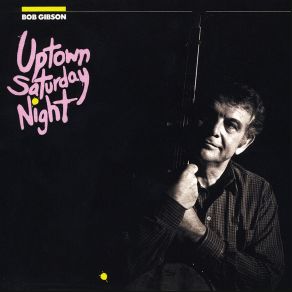Uptown Saturday Night
Download links and information about Uptown Saturday Night by Bob Gibson. This album was released in 1984 and it belongs to World Music, Songwriter/Lyricist, Contemporary Folk genres. It contains 10 tracks with total duration of 35:13 minutes.

|
|
|---|---|
| Artist: | Bob Gibson |
| Release date: | 1984 |
| Genre: | World Music, Songwriter/Lyricist, Contemporary Folk |
| Tracks: | 10 |
| Duration: | 35:13 |
| Buy it NOW at: | |
| Buy on iTunes $9.90 | |
| Buy on Amazon $8.99 | |
Tracks
[Edit]| No. | Title | Length |
|---|---|---|
| 1. | Let the Band Play Dixie | 4:30 |
| 2. | Rest of the Night | 3:11 |
| 3. | Tequila Sheila | 2:51 |
| 4. | And Lovin' You | 4:08 |
| 5. | Pilgrim | 3:01 |
| 6. | Uptown Saturday Night | 3:05 |
| 7. | Baby, If You Don't Know Now | 3:13 |
| 8. | Lookin' for the You | 3:50 |
| 9. | Tom Cattin' Time | 4:34 |
| 10. | Bein' On the Road | 2:50 |
Details
[Edit]After his prolific initial period of recording, 1956 to 1964, when he made a series of albums for Riverside and Elektra Records, Bob Gibson entered the recording studio infrequently during the subsequent 30 years of his career.
Uptown Saturday Night was on a small label, Hogeye Records, which he had founded with fellow folksinger Tom Paxton. It was a consistent collection of craftsmanlike original material that displayed the singer's talents well. His love songs, notably "Rest of the Night" and "Lookin' for the You," were tender and wistful, and they were offset by the comic material, which he rendered equally well. "Tequila Sheila," written by longtime associate Shel Silverstein and Mac Davis (and the only non-original on the album), provided a twist on the South of the Border theme, and the album-closing "Bein' on the Road" took successful pop musicians to task for their complaints about touring, which no doubt rang false to a performer who had traveled for decades in much less comfortable circumstances. Such songs as the title track and "Baby, If You Don't Know by Now" had a country-blues edge, but Gibson's renditions of the material were always restrained and considered.
Now in his early 50s, he was already an elder statesman of folk music, and this tempered album confirmed that place without breaking new ground.